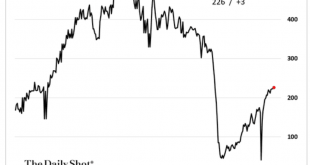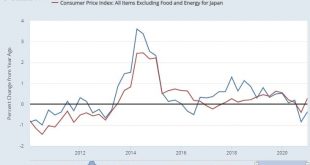from Dean Baker In recent weeks there have been several articles noting the enormous wealth that a small number of people have made off of the vaccines and treatments developed to control the pandemic. Many see this as an unfortunate outcome of our efforts to contain the pandemic. In that view, containing the pandemic is an immensely important goal, if some people get incredibly rich as result, it’s a price well worth paying. After all, maybe we can even tax back some of their wealth...
Read More »Are mindless zombies a projection of what we fear we have really become?
from Ikonoclast (originally a comment) It’s strange in a time of gross over-population that dystopian fiction so often focuses on hypothesized fertility crises. We see this in The Handmaid’s Tale and Children of Men, for example. This is when the real problem is of course the diametric opposite. The earth has a vast over-population crisis of humans and an accelerating decline of all other forms of life (the sixth mass extinction). It leads me to wonder if genuine fears are deflected by an...
Read More »How statistics can be misleading
.[embedded content] from Lars Syll From a theoretical perspective, Simpson’s paradox importantly shows that causality can never be reduced to a question of statistics or probabilities. To understand causality we always have to relate it to a specific causal structure. Statistical correlations are never enough. No structure, no causality. Simpson’s paradox is an interesting paradox in itself, but it can also highlight a deficiency in the traditional econometric approach towards causality....
Read More »Fascism unleashed: how the Republican Party sold its soul and now threatens democracy
This essay argues that some forty years ago the Republican Party struck a Faustian bargain whereby it traded integrity and decency for tax cuts and a corporate dominated economy. Now, the Republican party is reaping the consequences of that bargain in the form of its capture by Donald Trump and his followers. However, it also […]
Read More »How U.S. capitalism lifts all boats
from Jonathan Nitzan and Shimshon Bichler Liberals insist that capitalism lifts all boats. It doesn’t, certainly not in the U.S. Since 1880, ‘real’ total returns on the S&P 500 rose, on an annual average, 4.6% faster than U.S. ‘real’ wages. The total returns/wage ratio today is 1,166 greater than in 1880.
Read More »Open thread June 4, 2021
Causal inference from observational data
from Lars Syll Researchers often determine the individual’s contemporary IQ or IQ earlier in life, socioeconomic status of the family of origin, living circumstances when the individual was a child, number of siblings, whether the family had a library card, educational attainment of the individual, and other variables, and put all of them into a multiple-regression equation predicting adult socioeconomic status or income or social pathology or whatever. Researchers then report the...
Read More »Oil drilling, vehicle sales, unemployment claims, private payrolls
With oil prices working their way higher, so is US oil drilling: Looks like they are falling back to ‘trend’: Still lots of slack: So much for the notion that businesses can’t find employees? Still lots of slack:
Read More »Open thread June 1, 2021
Tags: open thread
Read More »QE After Action Report
I think it is now possible to look back on the debate on the effectiveness of non-standard monetary policy at the (near) zero lower bound. I will now “mark my beliefs to market” – J B DeLong. I think it is also a mildly worthwhile exercise, because it is relevant to the current debate about fiscal policy. A key argument for massive fiscal stimulus, well greater than any estimated output gap, is that making predictions, especially about the...
Read More » Heterodox
Heterodox




